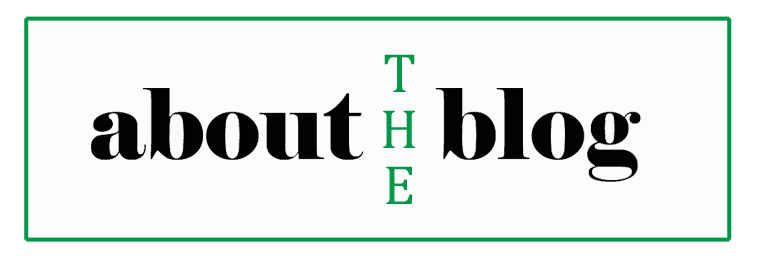
How to Become a Debt Collector: Everything You Need to Know!
A debt collector works with individuals and businesses who have fallen behind on their payments, whether it’s for a credit card balance, medical bills, or other financial obligations. They’re the professionals who step in when regular payment reminders haven’t worked, using their expertise to find constructive ways to resolve outstanding debts. Wondering if debt collection is the right career path for you? Check out our roundup of debt collector job duties to find out!
While some might view debt collection as simply making phone calls and sending letters, the reality is far more nuanced and rewarding. Modern debt collectors are skilled professionals who combine research abilities, problem-solving expertise, and human psychology to achieve successful outcomes. What makes this career particularly appealing is its potential for growth and development. The debt collection industry continues to evolve, offering opportunities for those willing to learn and adapt.
However, becoming a successful debt collector isn’t as simple as picking up the phone and asking for payment. It requires a thorough understanding of laws and regulations, development of strong communication skills, and mastery of various collection strategies. You’ll also need to learn how to navigate complex situations while maintaining professionalism and complying with consumer protection laws.
That’s why, today, I’ll be walking you through the essential steps to launching your career in debt collection.

How to Become a Debt Collector
Understanding what it takes to be a debt collector helps you chart the right path in this career. The role requires specific training, licensing, and skills development. Before going all in, you’ll need to know the educational requirements, legal framework, and day-to-day responsibilities. This knowledge ensures you can build the right foundation and set realistic expectations for your career progression in the debt collection industry. This comprehensive guide will show you exactly what to do to become a debt collector.
What Is A Debt Collector?
A debt collector is a professional who recovers payments on delinquent accounts for credit card companies, banks, healthcare providers, and other businesses. They analyze account information, locate and communicate with debtors professionally, as well as negotiate payment plans.
A good debt collector combines several key qualities, whether working in the office or collecting debts out in the field. These qualities, or soft skills, include:
- Strong communication skills to effectively discuss sensitive financial matters.
- Problem-solving abilities to find workable solutions for debt repayment.
- Attention to detail in maintaining accurate records and following debt collection processes.
- Emotional intelligence to effectively handle challenging conversations professionally.
- Research skills to locate and verify contact information.

What Qualifications Do You Need to Be a Debt Collector?
Building a successful career in debt collection requires specific qualifications and skills. Here’s what you need to get started and thrive in this field:
Education Requirements
A high school diploma is the minimum educational requirement for most entry-level debt collector positions. While a college degree isn’t mandatory, courses in finance, business, or law can give you an advantage. Some employers prefer candidates with associate’s or bachelor’s degrees, especially for management positions.
Licensing & Certification
Many states require a debt collection license before you can legally collect debts. Research your state’s licensing requirements and complete necessary applications and background checks. Some states also require continuing education to maintain your license. Professional certifications from organizations like ACA International can enhance your credentials and demonstrate expertise.
Legal Knowledge
Understanding laws and regulations is crucial. You must be well-versed in the stipulations of the Fair Debt Collection Practices Act (FDCPA), Fair Credit Reporting Act, state collection laws, and consumer protection regulations for the United States, among others.
Experience
While entry-level positions often require a brief period of training, experience in customer service, sales, or finance can be valuable. Having some years of experience in related fields can give you an edge over your peers. These fields include banking, collections call centers, credit departments, customer service, and even legal offices.

How To Be A Debt Collector
Here’s a step-by-step guide to launching your career in debt collection:
Step 1: Meet educational requirements.
First things first: you need to obtain a high school diploma or equivalent. You may also consider relevant college courses in business, finance, or law. Either way, be sure to complete any required pre-licensing education programs for your state.
Step 2: Obtain required licensing.
Start by researching your state’s debt collection license requirements. Then, proceed to submit application materials, pass background checks, and pay necessary fees. Some states require passing an exam or completing specific training programs, as well, so be sure to research thoroughly.
Step 3: Gain essential knowledge.
Want to practice and do your work without having legal headaches down the road? Then, you’ll need to master debt collection laws and regulations. Study the Fair Debt Collection Practices Act, learn state-specific collection laws, and make sure you fully understand consumer protection requirements. You should also review privacy regulations as it concerns debt collection. Dotting your I’s and crossing your T’s from the get-go helps to stay on the good side of the law.
Step 4: Develop core skills.
Understanding the legal framework around debt collection is essential, but it’s not enough on its own. You also need to develop skills to carry out your duties effectively, ensuring productivity while staying within legal boundaries. How well you can pull this off depends on how well you can develop these core skills. These include working on your professional communication abilities, negotiation skills, conflict resolution skills, research methods, and problem-solving strategies. Computer proficiency is also a must-have skill nowadays, so research what programs you may need to be savvy in to succeed.
Step 5: Maintain compliance.
In anything you do, always ensure you remain compliant with the laws and regulations. Staying compliant is much easier to achieve when you stay current with industry regulations, licensing requirements, best practices, and even technology updates.
With the right preparation and mindset, you can build a rewarding career helping businesses and individuals resolve financial obligations.
Remember that successful debt collection goes beyond making calls—it requires understanding laws and regulations, developing strong negotiation skills, and maintaining professional standards. Whether you’re joining an established debt collection agency or starting your own business, focus on continuous learning and staying updated with debt collection industry best practices.
Looking to master debt collection skills? Then consider joining Connection2Collections whether as an individual or company owner. Here, you’ll find valuable resources and connect with experienced professionals who can guide you through collection scenarios and compliance requirements. Our community also provides regular updates on legal trends, strategic approaches, and practical insights to help you succeed. See you there!

